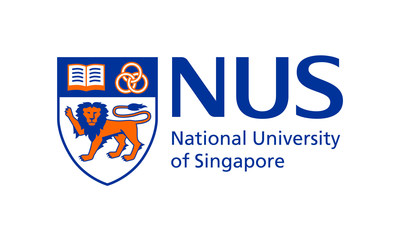NUS sets up AI Institute to accelerate frontier AI research and boost real-world impact for public good
Press Releases
Mar 25, 2024
New institute will foster a vibrant ecosystem that promotes synergistic AI research and applications, grow the AI talent pool, engage government and industry in partnerships, and expand entrepreneurship opportunities
SINGAPORE, March 25, 2024 /PRNewswire/ — From fortifying supply chain resilience against global disruptions and enhancing safety and resilience of energy systems to intelligent urban transport systems, personalised services and healthcare revolution – artificial intelligence (AI) is emerging as a force with the capacity to transform facets of our daily living and the society.
To further harness advancements in AI for the betterment of society, the National University of Singapore (NUS) has established the new NUS AI Institute (NAII) to advance fundamental research, development, and application of AI technologies for the benefit of society in areas such as education, healthcare, finance, sustainability, logistics & manufacturing, and others. The new institute will also conduct research on how to regulate for safeguarding transparency and accountability to address the ethical concerns and risks associated with AI. NAII brings together rich AI expertise across various schools, faculties and colleges at NUS, and will integrate the know-how to tackle challenges confronting Singapore and beyond.
In addition to S$8 million external research grants already secured by the NAII researchers, NUS is investing an additional S$20 million to kickstart the institute’s endeavours in these focused research areas: foundational AI research; policy & societal implications of AI; and real-world applications across various domains. NUS will train AI talent for Singapore and the world. NUS Provost is working with NUS colleges, faculties and schools to provide comprehensive AI education programmes for undergraduate and graduate students, professionals for continuing education, and policymakers. In addition, the NAII’s AI for Education research will also provide learning opportunities, such as internships, for undergraduate and graduate students.
The new institute aims to collaborate with government agencies and industry to amplify AI capabilities across the society.
Close collaboration with industry is essential and crucial, as this drives innovation and research translation to derive benefits for society and the economy. Strategic industry partnerships will enable NUS to better understand real-world challenges, to drive fundamental research and, in turn, develop the relevant talent and technologies for industry. For a start, IBM and Google Cloud will be collaborating with NAII as industry partners for research and domain applications development with the goal of spurring technological advancements and societal impact. NUS is in active discussions with other local and international companies to explore collaborative initiatives.
Located at the NUS School of Computing, the newly established university-wide institute is operational from 25 March 2024.
Professor Liu Bin, NUS Deputy President (Research and Technology), said, “The impact of AI on our lives, society, and economy will depend on how we develop, deploy and govern these technologies to maximise their benefits while addressing the challenges and the risks. Through strategic partnerships with local and international experts from both academia and industry, the new AI Institute will be the University’s focal point to synergise our diverse range of capabilities and create a dynamic ecosystem, where sound fundamental research will drive cutting-edge advances in AI, and where interdisciplinary collaborations will translate research outcomes into innovative solutions with deep impacts on our society.”
Professor Mohan Kankanhalli from the NUS School of Computing will be leading the new institute as its Director. Prof Kankanhalli is an authority on multimodal computing, computer vision as well as trustworthy AI. More than 20 principal investigators from a wide range of disciplines across NUS – including business, computer science, data science, engineering, medicine, law and sustainability – will be driving more than 10 research programmes in the institute.
“NAII aspires to become a global node of AI thought leadership, bringing together domain experts from within and beyond NUS to collaborate on impactful research problems to address societal issues. Recognising the importance of growing a pipeline of AI talent, the institute will also provide exciting hands-on opportunities for NUS students who are keen to pursue a career in AI or explore entrepreneurial pursuits in this fast-growing field,” added Prof Kankanhalli.
Synergistic AI research, High-impact translational outcomes
To unlock the full potential of AI and catalyse a positive multiplier effect, NAII is organising its research activities under four thrusts:
1. Foundational AI Research
Scientists at NAII will tackle challenging AI research problems in fundamental areas such as AI hardware or software systems, AI theory (learning and inference), responsible and safe AI, reasoning AI, and resource-efficient AI. Looking beyond current mainstream AI research, NUS researchers will explore long-term problems that can lead to future novel applications.
Some exciting projects include designing hardware and software computing systems infrastructure that can scale to handle future AI Cloud workloads; developing AI systems that are secure from external attacks and internal failures; and building efficient foundational AI models with lightweight architectures to achieve faster training and inference speed, as well as be energy-efficient.
2. Application Domains Research
Researchers from multiple disciplines, including AI experts and domain experts, will collaborate to develop a wide range of real-world applications across vertical domains such as healthcare; logistics, manufacturing and robotics; finance and economy; urban sustainability; education, humanities and social sciences; as well as AI for science – biology, chemistry and materials.
For example, scientists at NAII would leverage AI to improve operational efficiency, safety and resilience of the logistics and manufacturing sector, as well as use AI models to optimise the distribution of energy, reduce wastage and seamlessly integrate renewable energy sources into the grid. They will develop algorithms for building robust models for various kinds of financial and macro-economic forecasting, which will benefit the finance and business sectors. In the area of healthcare, researchers will be applying AI techniques to analyse vast RNA-related data for the development of new therapeutics to treat infections, cancer and heart-related diseases.
3. Policy and Societal Implications of AI
Research on robust AI governance frameworks will be conducted to ensure AI development and deployment are in line with societal values, ethical considerations, and legal requirements, to address issues such as accountability and transparency in AI decision-making. NAII will conduct studies to examine the impact of the deployment of AI systems in society. Focal areas of interest include governance, policy-making and regulations.
4. AI Infrastructure
The new institute will build a common repository of AI tools, such as statistical models, foundational models, inferencing models, and generative models, as part of a robust AI research infrastructure to support research translation and prototyping efforts.
Contributing to Singapore’s Research, Innovation and Enterprise (RIE) ecosystem
As the AI hub of NUS, the new institute will proactively engage government agencies and industry to broaden and deepen the impact of its work. Researchers at NAII will also collaborate with local and international partners to promote AI research and development.
Read more at: https://news.nus.edu.sg/nus-sets-up-ai-institute/
![]() View original content to download multimedia:https://www.prnewswire.com/news-releases/nus-sets-up-ai-institute-to-accelerate-frontier-ai-research-and-boost-real-world-impact-for-public-good-302097906.html
View original content to download multimedia:https://www.prnewswire.com/news-releases/nus-sets-up-ai-institute-to-accelerate-frontier-ai-research-and-boost-real-world-impact-for-public-good-302097906.html
SOURCE National University of Singapore




